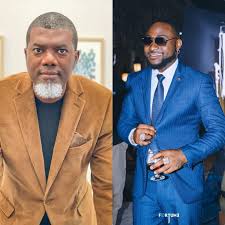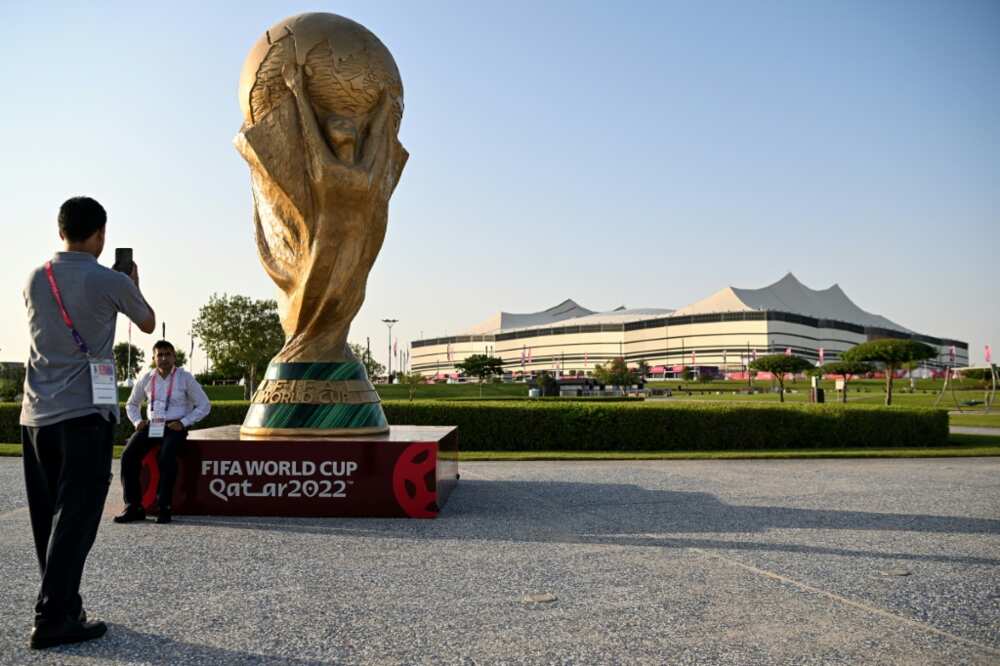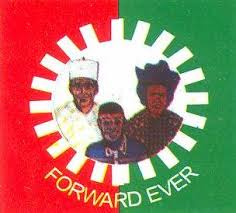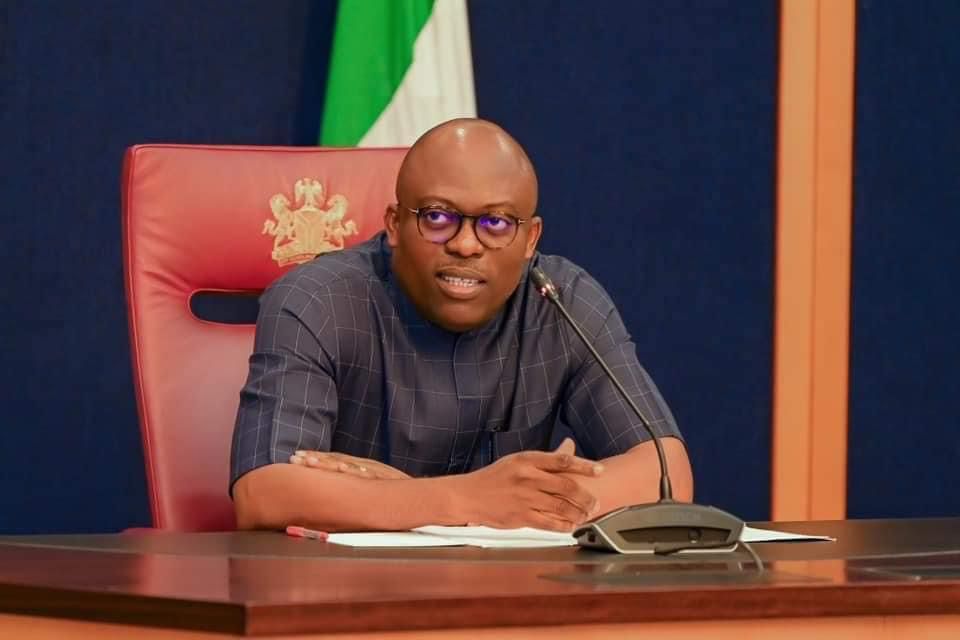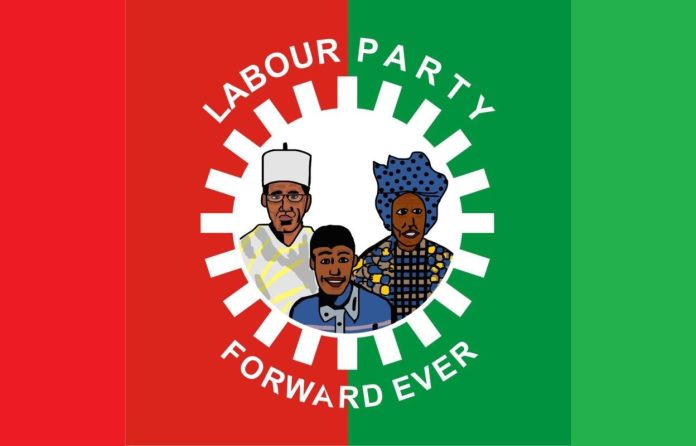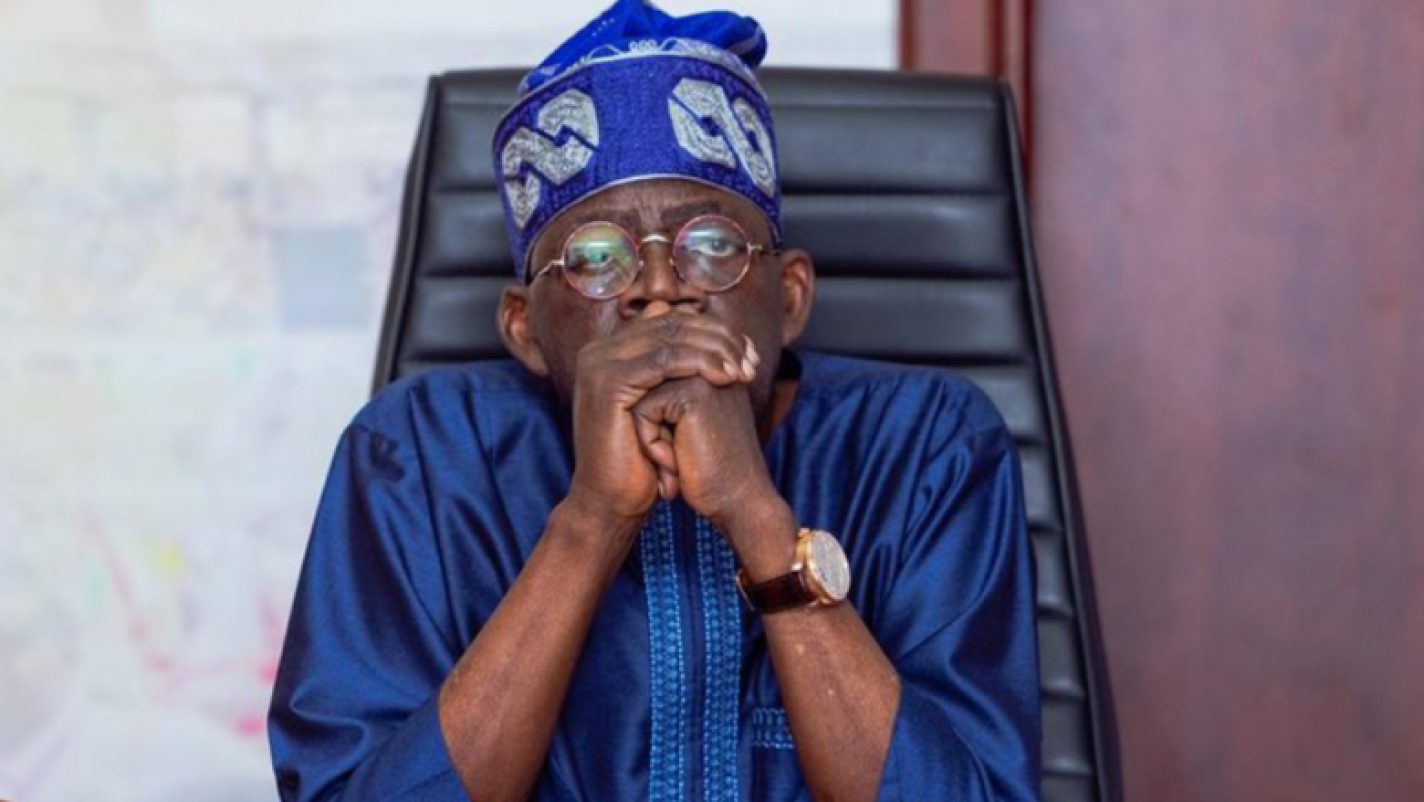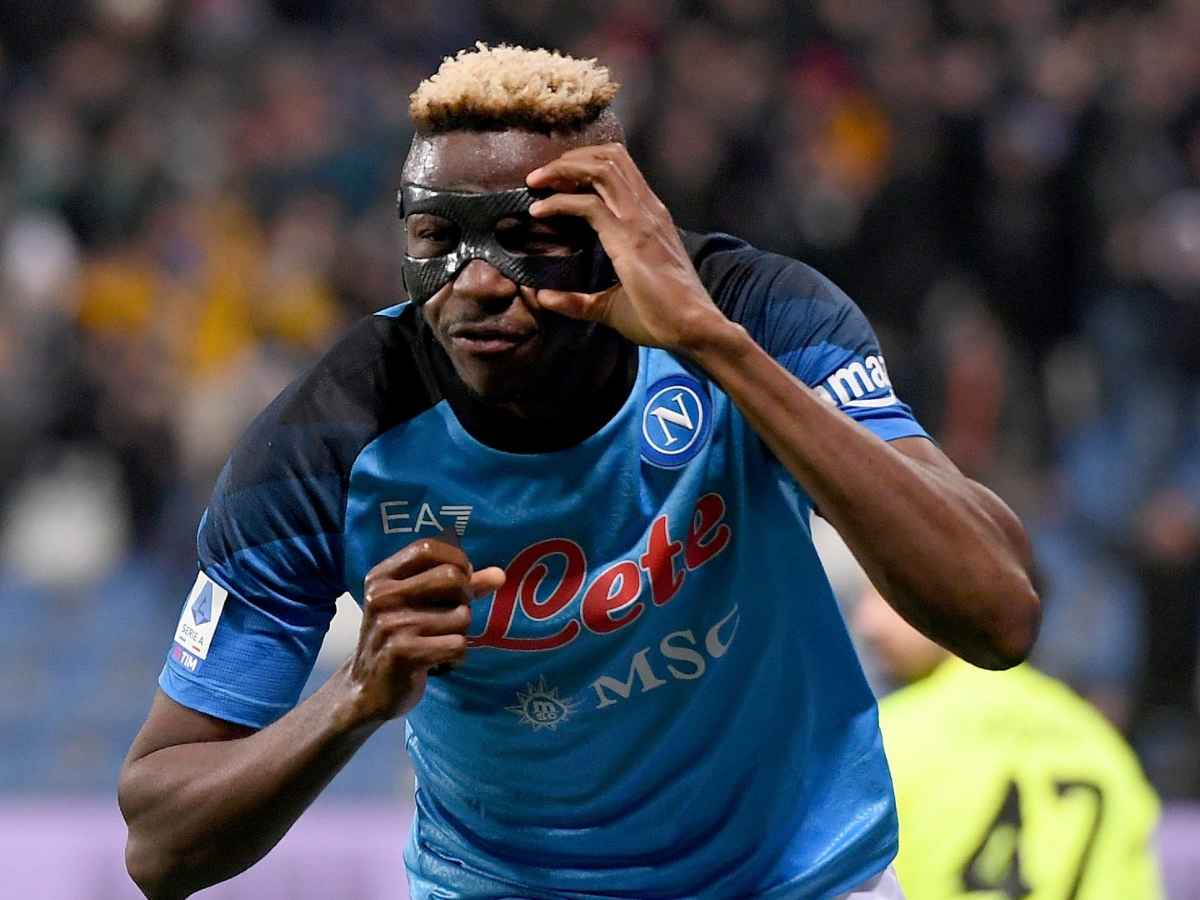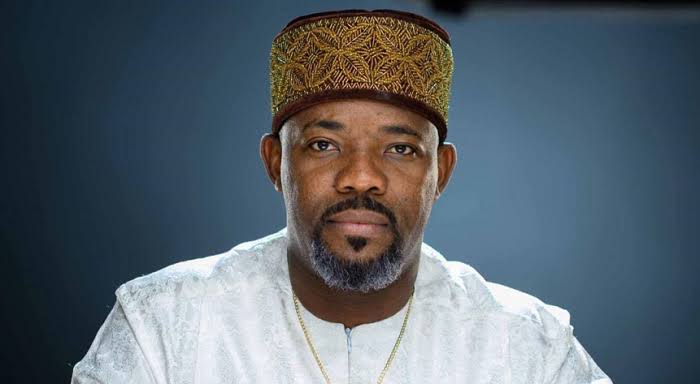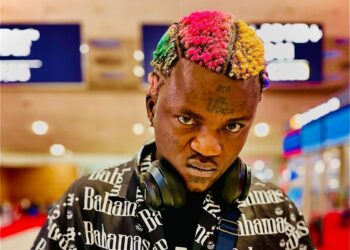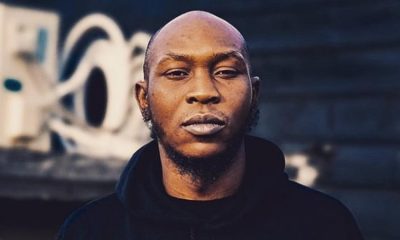The opinions presented in this piece are those of the author and do not necessarily represent InTv Media’s editorial position.Thank you.
In 1989, academics, Bill Ashcroft, Gareth Griffiths, and Helen Tiffin published to great acclaim their study of the evolution of the diverse dialects of English language from different Empire. Their title was The Empire Writes Back. The book shows how various outposts of the Empire took ownership of the language and adapted its grammar and usage.

Few outposts of Empire have been as prolific in this enterprise as Nigeria. Conceived as somewhat of an illegitimate offspring in the ménage à trois between Sir George Taubman Goldie; his mistress, Flora Shaw; and his successor in propinquity to her, Frederick Lugard, Nigeria became a colonial experiment in the Tower of Babel.
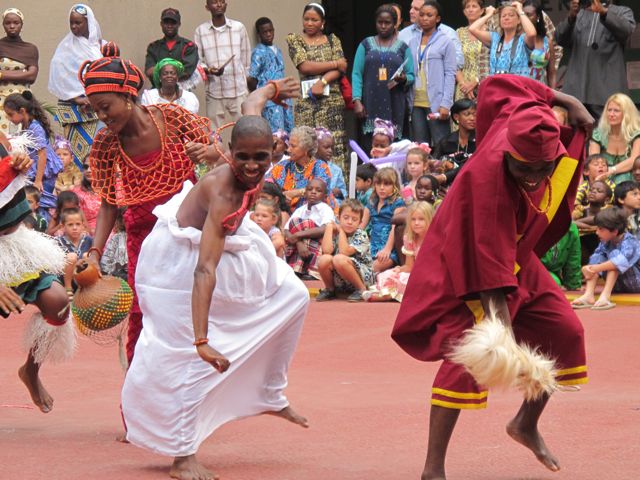
A national anthem composed in 1959, one year before Independence which occurred in 1960, acknowledged this reality in the third line of its first stanza, reminding the world of the aspiration to create a country even “though tribe and tongue may differ.” The anthem itself invited citizens to “hail” the country in antiquarian, Biblical third person, symbolizing a relationship with the country that was fractured from origin. Never mind that the hailing was to be done in the borrowed language of a foreign country.
Without compulsory access to basic education which could have created a shared vocabulary in the imported language, Nigerian imagination invented its own grammar of mutual intelligibility. This language is called “Pidgin English”, which does not entirely do it justice. It is characterized by an open-ended grammar in which meaning is always available to reveal itself to anyone interested in exercising imagination.
READ ALSO: Imperative And Impediment To Ndi’igbo Presidency
But this is not the only function of Nigerian English. French colonial policy of assimilation offered their way of life also as the height of civilization, promising natives (as the colonists called Africans everywhere) the opportunity to “evolve” to the highest level of civilization, which they claimed was French citizenship. For those of us from Nigeria, access to Nigerian English is our license to civilization.
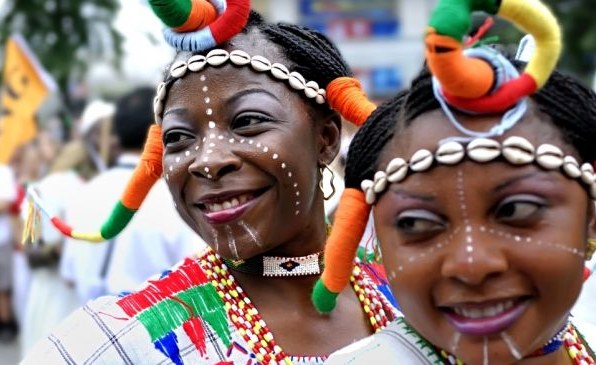
Over here, we describe those who have attained this level of civilization as “detribalized”. It is arguably the greatest compliment that one Nigerian can pay to another. By contrast, to the owners of the language, to detribalize someone is to render them rootless.
When his former Minister, Jubril Martins-Kuye, died last year, President Olusegun Obasanjo described him as “detribalised”.
Sokoto State Governor, Aminu Tambuwal, says only a “detribalised” Nigerian is fit to rule the country.
So, the supporters of the presidential candidate of the Peoples’ Democratic Party (PDP), Atiku Abubakar, are quick to claim the mantle, describing him as the only “detribalised” one in the race to succeed Muhammadu Buhari, who is mostly accused of being the opposite.
The supporters of the candidate of the Labour Party, Peter Obi, retort that he is “detribalised” too.
Not to be outdone, even tribesmen of the presidential candidate of the All Progressives Congress (APC) in the Yoruba Council of Elders (YCE) claim he is detribalised, which begs the question why they exist in the first place.
To demonstrate how meaningless the expression has become, former chairman of Kano State Primary Education Board (SPEB), Malam Yakubu Adamu, even described the late Emir of Kano, Alhaji Ado Bayero, as detribalised. But if the Emir, by definition is the embodiment of a tribe, how can he be described as “detribalized” at the same time?
Columnist, Tayo Oke, complains that the word is “widely embraced as a mark of respect by the political elite….yet, so devoid of substance”, adding that “people should find it infuriating that someone is pointing them out as a ‘detribalised’ Nigerian; it is an insult to the intelligence.”
Academic, Jideofor Adibe explains that “when we talk of being ‘detribalized’ in the Nigerian context, there is an assumption that there is a specific Nigerian culture to which those who have either voluntarily abandoned any form of relationship with the cultures and customs of their forefathers are socialized into.”
Under colonial occupation, the tribe was (as a matter of law) beneath civilization. Those who were defined by it naturally wanted to be unshackled from it.
For the native, the tribe was simultaneously a sanctuary from the colonial predations and prison from which he sought emancipation.
So, it was the mission of colonialism, they claimed, to bring such people into civilization.
Built into this were mechanisms to ensure that the tribalization of the native was resilient.
The Judicial Committee of the Privy Council in London determined in 1918 as the First World War ended that African tribes were “so low in the scale of social organization that their usages and conceptions of rights and duties are not to be reconciled with the institutions or the legal ideas of civilized society.” Tribespeople, they held, were incapable of legitimate leadership, property, or identity, and were beneath dignity.
Tribalisation of the native was central to the methods of colonial administration. Ugandan academic, Mahmood Mamdani described the tribe as “the unit of indirect rule administration.” As a result, the colonists made it such that “each tribe must be considered a distinct unit…. Each tribe must be under a chief.”
One year after the Privy Council’s decision, Frederick Lugard could assert in his Amalgamation Report delivered in 1919, that the policy was that these “Chiefs should govern their people not as independent but as dependent rulers.”
First, the Chiefs who were given powers of life and death in this way (like Emirs) had every incentive to sustain it.
Second, the tribe was the way by which colonists calibrated the benefits and burdens of government. It thus ensured competition among different populations and peoples for the attentions and affections of political power.
This meant, thirdly, that the tribe as an identity did not merely depend on the subjective views of those who identified with it; it also defined how those who do not belong to your tribe see you.
It is, therefore, no accident that Nigeria’s elite who seek to rule the country would think that their highest form of evolution is to describe themselves as “detribalised”.
In reality, the expression “detribalised” is worse than a patronizing piece of colonial nonsense. It begins from a conceptual error that “tribal” identity is expendable like a piece of traditional accoutrement. It is not.
When they use this expression, Nigeria’s elite create the impression that the tribe is like a pigment that you can cure with ejaculations from a tube of anthropological bleaching cream.
Ayodele, Ekaette, Kyari, Nkeiruka, Owoicho, are all markers of both belonging and of exclusion. No matter how evolved the bearer may wish to feel they are, these identities are reminders to others as to what boxes they must fit into.
Nativisation in this way is the mechanism by which Nigerians prepare to take on one another in the existential warfare over tribalisation. It is also the way in which we remind one another that ‘detribalised” is a con-job by the elite on the peasantry. While they claim to be “detribalized” these elite also ensure that their followers are fully tribalized exponents of inter-tribal warfare. It is the only way in which they can preserve their turf in the battle to carve up the country.
The implications are very far reaching. In Nigeria, at least, it means that you can take the tribe out of the man but it is impossible to take the man out of the tribe. It is no accident that the first question nearly every Nigerian asks the next is “where are you from?”
So many decades after the colonists left, this situation has hardly changed. Put differently, no matter how civilized you think you are, as long as you are in the country, Nigeria will happen to you and remind you where you come from without necessarily telling you it is going anywhere.
Chidi Anselm Odinkalu
The opinions presented in this piece are those of the author and do not necessarily represent InTv Media’s editorial position.Thank you.
In 1989, academics, Bill Ashcroft, Gareth Griffiths, and Helen Tiffin published to great acclaim their study of the evolution of the diverse dialects of English language from different Empire. Their title was The Empire Writes Back. The book shows how various outposts of the Empire took ownership of the language and adapted its grammar and usage.

Few outposts of Empire have been as prolific in this enterprise as Nigeria. Conceived as somewhat of an illegitimate offspring in the ménage à trois between Sir George Taubman Goldie; his mistress, Flora Shaw; and his successor in propinquity to her, Frederick Lugard, Nigeria became a colonial experiment in the Tower of Babel.

A national anthem composed in 1959, one year before Independence which occurred in 1960, acknowledged this reality in the third line of its first stanza, reminding the world of the aspiration to create a country even “though tribe and tongue may differ.” The anthem itself invited citizens to “hail” the country in antiquarian, Biblical third person, symbolizing a relationship with the country that was fractured from origin. Never mind that the hailing was to be done in the borrowed language of a foreign country.
Without compulsory access to basic education which could have created a shared vocabulary in the imported language, Nigerian imagination invented its own grammar of mutual intelligibility. This language is called “Pidgin English”, which does not entirely do it justice. It is characterized by an open-ended grammar in which meaning is always available to reveal itself to anyone interested in exercising imagination.
READ ALSO: Imperative And Impediment To Ndi’igbo Presidency
But this is not the only function of Nigerian English. French colonial policy of assimilation offered their way of life also as the height of civilization, promising natives (as the colonists called Africans everywhere) the opportunity to “evolve” to the highest level of civilization, which they claimed was French citizenship. For those of us from Nigeria, access to Nigerian English is our license to civilization.

Over here, we describe those who have attained this level of civilization as “detribalized”. It is arguably the greatest compliment that one Nigerian can pay to another. By contrast, to the owners of the language, to detribalize someone is to render them rootless.
When his former Minister, Jubril Martins-Kuye, died last year, President Olusegun Obasanjo described him as “detribalised”.
Sokoto State Governor, Aminu Tambuwal, says only a “detribalised” Nigerian is fit to rule the country.
So, the supporters of the presidential candidate of the Peoples’ Democratic Party (PDP), Atiku Abubakar, are quick to claim the mantle, describing him as the only “detribalised” one in the race to succeed Muhammadu Buhari, who is mostly accused of being the opposite.
The supporters of the candidate of the Labour Party, Peter Obi, retort that he is “detribalised” too.
Not to be outdone, even tribesmen of the presidential candidate of the All Progressives Congress (APC) in the Yoruba Council of Elders (YCE) claim he is detribalised, which begs the question why they exist in the first place.
To demonstrate how meaningless the expression has become, former chairman of Kano State Primary Education Board (SPEB), Malam Yakubu Adamu, even described the late Emir of Kano, Alhaji Ado Bayero, as detribalised. But if the Emir, by definition is the embodiment of a tribe, how can he be described as “detribalized” at the same time?
Columnist, Tayo Oke, complains that the word is “widely embraced as a mark of respect by the political elite….yet, so devoid of substance”, adding that “people should find it infuriating that someone is pointing them out as a ‘detribalised’ Nigerian; it is an insult to the intelligence.”
Academic, Jideofor Adibe explains that “when we talk of being ‘detribalized’ in the Nigerian context, there is an assumption that there is a specific Nigerian culture to which those who have either voluntarily abandoned any form of relationship with the cultures and customs of their forefathers are socialized into.”
Under colonial occupation, the tribe was (as a matter of law) beneath civilization. Those who were defined by it naturally wanted to be unshackled from it.
For the native, the tribe was simultaneously a sanctuary from the colonial predations and prison from which he sought emancipation.
So, it was the mission of colonialism, they claimed, to bring such people into civilization.
Built into this were mechanisms to ensure that the tribalization of the native was resilient.
The Judicial Committee of the Privy Council in London determined in 1918 as the First World War ended that African tribes were “so low in the scale of social organization that their usages and conceptions of rights and duties are not to be reconciled with the institutions or the legal ideas of civilized society.” Tribespeople, they held, were incapable of legitimate leadership, property, or identity, and were beneath dignity.
Tribalisation of the native was central to the methods of colonial administration. Ugandan academic, Mahmood Mamdani described the tribe as “the unit of indirect rule administration.” As a result, the colonists made it such that “each tribe must be considered a distinct unit…. Each tribe must be under a chief.”
One year after the Privy Council’s decision, Frederick Lugard could assert in his Amalgamation Report delivered in 1919, that the policy was that these “Chiefs should govern their people not as independent but as dependent rulers.”
First, the Chiefs who were given powers of life and death in this way (like Emirs) had every incentive to sustain it.
Second, the tribe was the way by which colonists calibrated the benefits and burdens of government. It thus ensured competition among different populations and peoples for the attentions and affections of political power.
This meant, thirdly, that the tribe as an identity did not merely depend on the subjective views of those who identified with it; it also defined how those who do not belong to your tribe see you.
It is, therefore, no accident that Nigeria’s elite who seek to rule the country would think that their highest form of evolution is to describe themselves as “detribalised”.
In reality, the expression “detribalised” is worse than a patronizing piece of colonial nonsense. It begins from a conceptual error that “tribal” identity is expendable like a piece of traditional accoutrement. It is not.
When they use this expression, Nigeria’s elite create the impression that the tribe is like a pigment that you can cure with ejaculations from a tube of anthropological bleaching cream.
Ayodele, Ekaette, Kyari, Nkeiruka, Owoicho, are all markers of both belonging and of exclusion. No matter how evolved the bearer may wish to feel they are, these identities are reminders to others as to what boxes they must fit into.
Nativisation in this way is the mechanism by which Nigerians prepare to take on one another in the existential warfare over tribalisation. It is also the way in which we remind one another that ‘detribalised” is a con-job by the elite on the peasantry. While they claim to be “detribalized” these elite also ensure that their followers are fully tribalized exponents of inter-tribal warfare. It is the only way in which they can preserve their turf in the battle to carve up the country.
The implications are very far reaching. In Nigeria, at least, it means that you can take the tribe out of the man but it is impossible to take the man out of the tribe. It is no accident that the first question nearly every Nigerian asks the next is “where are you from?”
So many decades after the colonists left, this situation has hardly changed. Put differently, no matter how civilized you think you are, as long as you are in the country, Nigeria will happen to you and remind you where you come from without necessarily telling you it is going anywhere.
Chidi Anselm Odinkalu
The opinions presented in this piece are those of the author and do not necessarily represent InTv Media’s editorial position.Thank you.
In 1989, academics, Bill Ashcroft, Gareth Griffiths, and Helen Tiffin published to great acclaim their study of the evolution of the diverse dialects of English language from different Empire. Their title was The Empire Writes Back. The book shows how various outposts of the Empire took ownership of the language and adapted its grammar and usage.

Few outposts of Empire have been as prolific in this enterprise as Nigeria. Conceived as somewhat of an illegitimate offspring in the ménage à trois between Sir George Taubman Goldie; his mistress, Flora Shaw; and his successor in propinquity to her, Frederick Lugard, Nigeria became a colonial experiment in the Tower of Babel.

A national anthem composed in 1959, one year before Independence which occurred in 1960, acknowledged this reality in the third line of its first stanza, reminding the world of the aspiration to create a country even “though tribe and tongue may differ.” The anthem itself invited citizens to “hail” the country in antiquarian, Biblical third person, symbolizing a relationship with the country that was fractured from origin. Never mind that the hailing was to be done in the borrowed language of a foreign country.
Without compulsory access to basic education which could have created a shared vocabulary in the imported language, Nigerian imagination invented its own grammar of mutual intelligibility. This language is called “Pidgin English”, which does not entirely do it justice. It is characterized by an open-ended grammar in which meaning is always available to reveal itself to anyone interested in exercising imagination.
READ ALSO: Imperative And Impediment To Ndi’igbo Presidency
But this is not the only function of Nigerian English. French colonial policy of assimilation offered their way of life also as the height of civilization, promising natives (as the colonists called Africans everywhere) the opportunity to “evolve” to the highest level of civilization, which they claimed was French citizenship. For those of us from Nigeria, access to Nigerian English is our license to civilization.

Over here, we describe those who have attained this level of civilization as “detribalized”. It is arguably the greatest compliment that one Nigerian can pay to another. By contrast, to the owners of the language, to detribalize someone is to render them rootless.
When his former Minister, Jubril Martins-Kuye, died last year, President Olusegun Obasanjo described him as “detribalised”.
Sokoto State Governor, Aminu Tambuwal, says only a “detribalised” Nigerian is fit to rule the country.
So, the supporters of the presidential candidate of the Peoples’ Democratic Party (PDP), Atiku Abubakar, are quick to claim the mantle, describing him as the only “detribalised” one in the race to succeed Muhammadu Buhari, who is mostly accused of being the opposite.
The supporters of the candidate of the Labour Party, Peter Obi, retort that he is “detribalised” too.
Not to be outdone, even tribesmen of the presidential candidate of the All Progressives Congress (APC) in the Yoruba Council of Elders (YCE) claim he is detribalised, which begs the question why they exist in the first place.
To demonstrate how meaningless the expression has become, former chairman of Kano State Primary Education Board (SPEB), Malam Yakubu Adamu, even described the late Emir of Kano, Alhaji Ado Bayero, as detribalised. But if the Emir, by definition is the embodiment of a tribe, how can he be described as “detribalized” at the same time?
Columnist, Tayo Oke, complains that the word is “widely embraced as a mark of respect by the political elite….yet, so devoid of substance”, adding that “people should find it infuriating that someone is pointing them out as a ‘detribalised’ Nigerian; it is an insult to the intelligence.”
Academic, Jideofor Adibe explains that “when we talk of being ‘detribalized’ in the Nigerian context, there is an assumption that there is a specific Nigerian culture to which those who have either voluntarily abandoned any form of relationship with the cultures and customs of their forefathers are socialized into.”
Under colonial occupation, the tribe was (as a matter of law) beneath civilization. Those who were defined by it naturally wanted to be unshackled from it.
For the native, the tribe was simultaneously a sanctuary from the colonial predations and prison from which he sought emancipation.
So, it was the mission of colonialism, they claimed, to bring such people into civilization.
Built into this were mechanisms to ensure that the tribalization of the native was resilient.
The Judicial Committee of the Privy Council in London determined in 1918 as the First World War ended that African tribes were “so low in the scale of social organization that their usages and conceptions of rights and duties are not to be reconciled with the institutions or the legal ideas of civilized society.” Tribespeople, they held, were incapable of legitimate leadership, property, or identity, and were beneath dignity.
Tribalisation of the native was central to the methods of colonial administration. Ugandan academic, Mahmood Mamdani described the tribe as “the unit of indirect rule administration.” As a result, the colonists made it such that “each tribe must be considered a distinct unit…. Each tribe must be under a chief.”
One year after the Privy Council’s decision, Frederick Lugard could assert in his Amalgamation Report delivered in 1919, that the policy was that these “Chiefs should govern their people not as independent but as dependent rulers.”
First, the Chiefs who were given powers of life and death in this way (like Emirs) had every incentive to sustain it.
Second, the tribe was the way by which colonists calibrated the benefits and burdens of government. It thus ensured competition among different populations and peoples for the attentions and affections of political power.
This meant, thirdly, that the tribe as an identity did not merely depend on the subjective views of those who identified with it; it also defined how those who do not belong to your tribe see you.
It is, therefore, no accident that Nigeria’s elite who seek to rule the country would think that their highest form of evolution is to describe themselves as “detribalised”.
In reality, the expression “detribalised” is worse than a patronizing piece of colonial nonsense. It begins from a conceptual error that “tribal” identity is expendable like a piece of traditional accoutrement. It is not.
When they use this expression, Nigeria’s elite create the impression that the tribe is like a pigment that you can cure with ejaculations from a tube of anthropological bleaching cream.
Ayodele, Ekaette, Kyari, Nkeiruka, Owoicho, are all markers of both belonging and of exclusion. No matter how evolved the bearer may wish to feel they are, these identities are reminders to others as to what boxes they must fit into.
Nativisation in this way is the mechanism by which Nigerians prepare to take on one another in the existential warfare over tribalisation. It is also the way in which we remind one another that ‘detribalised” is a con-job by the elite on the peasantry. While they claim to be “detribalized” these elite also ensure that their followers are fully tribalized exponents of inter-tribal warfare. It is the only way in which they can preserve their turf in the battle to carve up the country.
The implications are very far reaching. In Nigeria, at least, it means that you can take the tribe out of the man but it is impossible to take the man out of the tribe. It is no accident that the first question nearly every Nigerian asks the next is “where are you from?”
So many decades after the colonists left, this situation has hardly changed. Put differently, no matter how civilized you think you are, as long as you are in the country, Nigeria will happen to you and remind you where you come from without necessarily telling you it is going anywhere.
Chidi Anselm Odinkalu
The opinions presented in this piece are those of the author and do not necessarily represent InTv Media’s editorial position.Thank you.
In 1989, academics, Bill Ashcroft, Gareth Griffiths, and Helen Tiffin published to great acclaim their study of the evolution of the diverse dialects of English language from different Empire. Their title was The Empire Writes Back. The book shows how various outposts of the Empire took ownership of the language and adapted its grammar and usage.

Few outposts of Empire have been as prolific in this enterprise as Nigeria. Conceived as somewhat of an illegitimate offspring in the ménage à trois between Sir George Taubman Goldie; his mistress, Flora Shaw; and his successor in propinquity to her, Frederick Lugard, Nigeria became a colonial experiment in the Tower of Babel.

A national anthem composed in 1959, one year before Independence which occurred in 1960, acknowledged this reality in the third line of its first stanza, reminding the world of the aspiration to create a country even “though tribe and tongue may differ.” The anthem itself invited citizens to “hail” the country in antiquarian, Biblical third person, symbolizing a relationship with the country that was fractured from origin. Never mind that the hailing was to be done in the borrowed language of a foreign country.
Without compulsory access to basic education which could have created a shared vocabulary in the imported language, Nigerian imagination invented its own grammar of mutual intelligibility. This language is called “Pidgin English”, which does not entirely do it justice. It is characterized by an open-ended grammar in which meaning is always available to reveal itself to anyone interested in exercising imagination.
READ ALSO: Imperative And Impediment To Ndi’igbo Presidency
But this is not the only function of Nigerian English. French colonial policy of assimilation offered their way of life also as the height of civilization, promising natives (as the colonists called Africans everywhere) the opportunity to “evolve” to the highest level of civilization, which they claimed was French citizenship. For those of us from Nigeria, access to Nigerian English is our license to civilization.

Over here, we describe those who have attained this level of civilization as “detribalized”. It is arguably the greatest compliment that one Nigerian can pay to another. By contrast, to the owners of the language, to detribalize someone is to render them rootless.
When his former Minister, Jubril Martins-Kuye, died last year, President Olusegun Obasanjo described him as “detribalised”.
Sokoto State Governor, Aminu Tambuwal, says only a “detribalised” Nigerian is fit to rule the country.
So, the supporters of the presidential candidate of the Peoples’ Democratic Party (PDP), Atiku Abubakar, are quick to claim the mantle, describing him as the only “detribalised” one in the race to succeed Muhammadu Buhari, who is mostly accused of being the opposite.
The supporters of the candidate of the Labour Party, Peter Obi, retort that he is “detribalised” too.
Not to be outdone, even tribesmen of the presidential candidate of the All Progressives Congress (APC) in the Yoruba Council of Elders (YCE) claim he is detribalised, which begs the question why they exist in the first place.
To demonstrate how meaningless the expression has become, former chairman of Kano State Primary Education Board (SPEB), Malam Yakubu Adamu, even described the late Emir of Kano, Alhaji Ado Bayero, as detribalised. But if the Emir, by definition is the embodiment of a tribe, how can he be described as “detribalized” at the same time?
Columnist, Tayo Oke, complains that the word is “widely embraced as a mark of respect by the political elite….yet, so devoid of substance”, adding that “people should find it infuriating that someone is pointing them out as a ‘detribalised’ Nigerian; it is an insult to the intelligence.”
Academic, Jideofor Adibe explains that “when we talk of being ‘detribalized’ in the Nigerian context, there is an assumption that there is a specific Nigerian culture to which those who have either voluntarily abandoned any form of relationship with the cultures and customs of their forefathers are socialized into.”
Under colonial occupation, the tribe was (as a matter of law) beneath civilization. Those who were defined by it naturally wanted to be unshackled from it.
For the native, the tribe was simultaneously a sanctuary from the colonial predations and prison from which he sought emancipation.
So, it was the mission of colonialism, they claimed, to bring such people into civilization.
Built into this were mechanisms to ensure that the tribalization of the native was resilient.
The Judicial Committee of the Privy Council in London determined in 1918 as the First World War ended that African tribes were “so low in the scale of social organization that their usages and conceptions of rights and duties are not to be reconciled with the institutions or the legal ideas of civilized society.” Tribespeople, they held, were incapable of legitimate leadership, property, or identity, and were beneath dignity.
Tribalisation of the native was central to the methods of colonial administration. Ugandan academic, Mahmood Mamdani described the tribe as “the unit of indirect rule administration.” As a result, the colonists made it such that “each tribe must be considered a distinct unit…. Each tribe must be under a chief.”
One year after the Privy Council’s decision, Frederick Lugard could assert in his Amalgamation Report delivered in 1919, that the policy was that these “Chiefs should govern their people not as independent but as dependent rulers.”
First, the Chiefs who were given powers of life and death in this way (like Emirs) had every incentive to sustain it.
Second, the tribe was the way by which colonists calibrated the benefits and burdens of government. It thus ensured competition among different populations and peoples for the attentions and affections of political power.
This meant, thirdly, that the tribe as an identity did not merely depend on the subjective views of those who identified with it; it also defined how those who do not belong to your tribe see you.
It is, therefore, no accident that Nigeria’s elite who seek to rule the country would think that their highest form of evolution is to describe themselves as “detribalised”.
In reality, the expression “detribalised” is worse than a patronizing piece of colonial nonsense. It begins from a conceptual error that “tribal” identity is expendable like a piece of traditional accoutrement. It is not.
When they use this expression, Nigeria’s elite create the impression that the tribe is like a pigment that you can cure with ejaculations from a tube of anthropological bleaching cream.
Ayodele, Ekaette, Kyari, Nkeiruka, Owoicho, are all markers of both belonging and of exclusion. No matter how evolved the bearer may wish to feel they are, these identities are reminders to others as to what boxes they must fit into.
Nativisation in this way is the mechanism by which Nigerians prepare to take on one another in the existential warfare over tribalisation. It is also the way in which we remind one another that ‘detribalised” is a con-job by the elite on the peasantry. While they claim to be “detribalized” these elite also ensure that their followers are fully tribalized exponents of inter-tribal warfare. It is the only way in which they can preserve their turf in the battle to carve up the country.
The implications are very far reaching. In Nigeria, at least, it means that you can take the tribe out of the man but it is impossible to take the man out of the tribe. It is no accident that the first question nearly every Nigerian asks the next is “where are you from?”
So many decades after the colonists left, this situation has hardly changed. Put differently, no matter how civilized you think you are, as long as you are in the country, Nigeria will happen to you and remind you where you come from without necessarily telling you it is going anywhere.
Chidi Anselm Odinkalu



